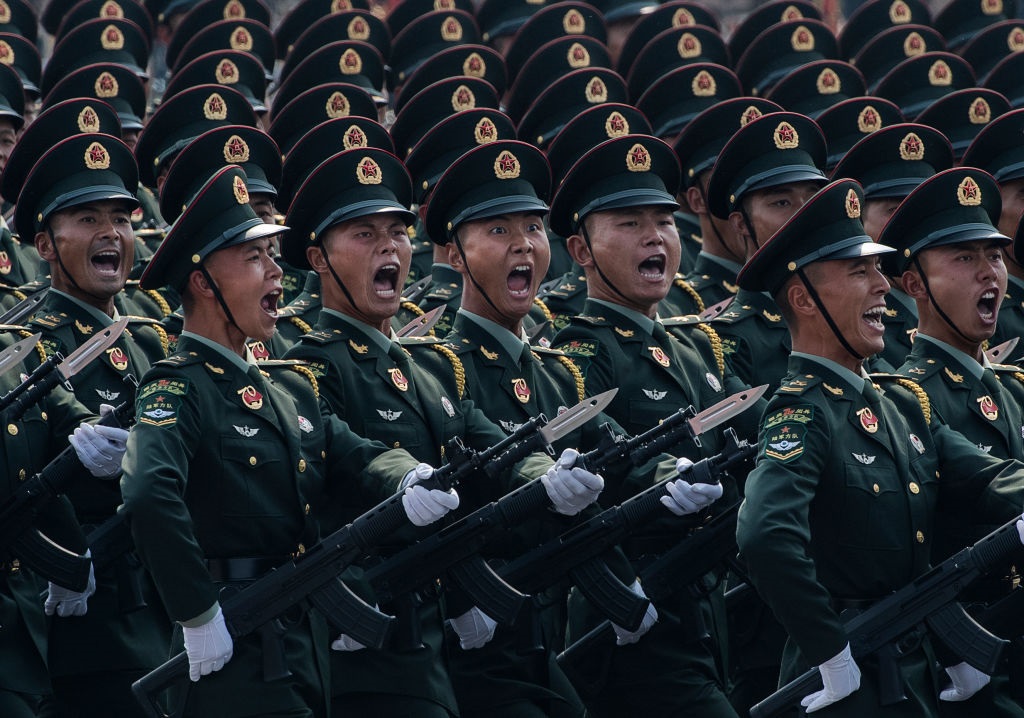Paul Dibb

As the well-regarded Swedish Defence Research Agency has recently observed, a rethink of Moscow’s military capability is clearly warranted to understand the causes of the current malaise in Russia’s military capabilities. The agency says that is needed both for the West to adjust to its demonstrable shortcomings and weaknesses and, equally importantly, to understand their causes and long-term strategic implications. In my view, Western intelligence analysts and policymakers have consistently overrated Russia’s and the Soviet Union’s military strengths. And precisely the same mistakes are now being made about China’s PLA.
What are the reasons for this? First, as Professor Zoltan Barany of the University of Texas has argued: when the adversary is a totalitarian state it is easier to make judgements based on quantitative assessments of counting weapons—tanks, jet fighters, and missiles—and raw manpower, rather than on the qualitative and psychological characteristics that often determine the military’s performance on the battlefield.
Second, because of Russia’s and China’s autocratic systems and pervasive corruption, it has proved difficult for them to bring the kinds of innovation, adaptability, and versatility that tend to produce the best outcomes on the battlefield. The fact is it is easy to concentrate on the material strengths of both China and Russia that can be counted by overhead means of intelligence, while neglecting crucial intangibles such as the quality and experience of their troops.
Third, one of the most serious intangible defects of China’s and Russia’s military forces is that they lack a critical mass of professionally trained NCOs. The dearth of professional non-commissioned officers means that totalitarian armies are unable to fight effectively because NCOs provide the vital link between officers and soldiers about battlefield decision-making. Military command and control culture boils down to trust, including at the operational level.
Trust is not one of the strengths of authoritarian states like China and Russia. As the US Center for Security and Emerging Technology has observed, military command and control in such authoritarian regimes have rigid and fragmented command and control structures because the political leadership does not trust the military leadership, and the military does not trust the rank-and-file. Such systems fail to successfully share information, discourage initiative, and prevent battlefield lessons from informing strategy or being incorporated into future military doctrine. These critical structural deficiencies are part of both China’s and Russia’s military DNA.
Fourth, there has been far too much focus on weapons systems and new technology and endless claims that each new Chinese or Russian weapon is so much superior to those of the US. An example of this recently was when an ‘expert’ in Canberra proclaimed that China’s latest nuclear attack submarine was quieter than the US Virginia class. That sort of ill-informed judgement is typical of those who have never had the security clearance for close-quarter covert submarine operations or an understanding that the US still dominates war under the seas. For example, China’s strategic nuclear submarines (SSBNs) do not provide Beijing with an assured nuclear second-strike force because they are very vulnerable to US attack submarines (SSNs).
Fifth, few in the West pay close attention to the actual composition, training, and preparedness of Russian and Chinese troops themselves or their ability to operate as a joint force outside of artificial planned exercises.
And sixth, authoritarian leaderships in both China and Russia are typified by deep-seated despotism that typifies military politics, and pervasive corruption that saps the fighting strength of their armed forces.
Finally, it is little understood in the West that the oath of allegiance of PLA soldiers is to the Communist Party of China, whereas that of the Soviet Army was to defend the USSR. Chinese troops must waste much of their time studying and regurgitating Communist Party propaganda, which further detracts from their military expertise. Long may they continue to waste their military training spending countless hours on such irrelevant ideology as Xi Jinping’s Thought!
None of this is to argue that the weaknesses and deficiencies of both China and Russia are identical. But the fact remains that much more so than Russia, China has no practical combat experience worth talking about. Its last serious use of force overseas was in 1979 when it sought to teach Vietnam a lesson—and failed miserably.
The believers in Australia of China’s military superiority seem to accept that China has the means and the will to escalate indefinitely and thereby defeat the US and that China is also prepared to pay any price because it enjoys escalatory dominance and cannot be deterred. My view is that the hypothetical of a defeated US in Taiwan (and perhaps at the same time NATO in Europe) increases the risks of nuclear war. Those who argue that we should surrender Taiwan to China or risk nuclear confrontation fail to understand China’s military weaknesses.
In conclusion, we need much more serious and in-depth analyses of China’s military weaknesses and deficiencies. I reject the arguments of those who proclaim that the risks are too high of resisting and deterring a China that allegedly has superior military forces to those of America. Those who carelessly assert that the US is finished, that China inevitably will be the dominant military power over the entire Asia-Pacific region, and that our only survival will be to get out of the ANZUS Alliance need to think again. Their argument is based on very shaky views of China’s military superiority which is a superficial and untested assertion.
The fact is that China shares many of the fatal weaknesses of Russia’s military, which is performing so abysmally in Moscow’s war in Ukraine. I believe that the prudent defensive policy of the US and its allies in the Asia-Pacific region, including Australia, must be to acquire the military capabilities to constrain, check and deter any expansionist ambitions of the PLA.
(A version of this article was published in The Weekend Australian.)
No comments:
Post a Comment